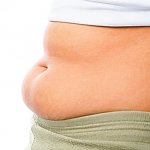Speaking at the survey’s activation meeting in Ibadan, the Permanent Secretary, Oyo State Ministry of Health, Dr Yemisi Iyiola, said the state had been working with arbitrary figures before now in planning its HIV responses.
Dr Iyiola, represented by Dr Wole Lawal, Director, Primary Health Care at the Health Ministry, said with the surveys’ result would give more accurate data on the prevalence of these diseases and ensure adequate planning for their control and treatment.
ALSO READ: Kwara governor withdraws from 2019 senatorial contest
Project manager, Oyo state Agency for the Control of AIDS (OYOSACA), Dr Olukayode Ogunkunle, said the results of the survey is core to ensuring at least 90 per cent of people know their HIV status, at least 90 per cent of people living with HIV access HIV care and treatment and at least 90 per cent of those on HIV treatment adhere to their treatment.
Ogunkunle said ensuring everyone gets tested to know their HIV status and those that tested positive for HIV start treatment is a form of prevention against the virus.
According to him, “this will help cut the transmission of HIV and then the quality of life of those that are positive will improve when they are put on treatment because the virus load is suppressed.”
Dr Ogunkunle said to forestall any religious or cultural resistance, the agency six weeks ago commenced sensitisation of people from house to house about the survey in all the enumeration areas around the state.
NACA’s board member, Senator Oladipo Odujinrin ,said that if HIV is handled at its early stages, it does not go on to its deadly form, AIDS, thus the essence of the survey.
Senator Odujinrin urged that people should not be hostile to the enumerators because the survey will help to have an idea of the exact prevalence of HIV in Nigeria.
Southwest zonal coordinator for NAIIS, Dr Obafemi Babalola, said participation in this survey to last for three weeks in the state was voluntary
According to him, “at least 90 per cent of the people that we want to see in each state participated; and that is very good. Some of the challenges encountered by the survey in other south westerns states were overcome through good community mobilisation and participation of traditional and religious leaders.”
Dr Babalola said aside the 350 enumerators assessing participants’ knowledge on HIV, the collected blood sample for further tests will be sent to medical laboratories at Military hospital Ibadan and State General Hospitals at Ogbomoso and Saki.
Meanwhile, the director-general of the National Agency for the Control of AIDS (NACA), Dr Sani Aliyu, said in Abuja said the result of the Nigerian national survey of people living with HIV/AIDS will be out by March next year.
Mr Aliyu said the survey has been carried out in 27 out of the 36 states of Nigeria, which represent about 75 per cent of the entire work.






